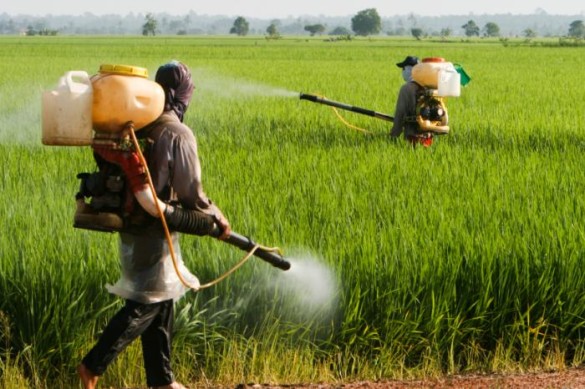Nirmesh Singh
If we see the agro seeds and agrochemical companies all over the world, we will observe the strategic changes happening in the business of leading companies. Most important to watch is that Germany’s chemical giant Bayer is buying world’s biggest seed company Monsanto for 66 billion dollars. According to market sources, the deal can be bigger than what is being shown. This deal will be complete after concerned institutions of European Union and US give their nod. But this kind of merger may set off an alarming precedence as this will lead to control of the seed and chemicals business sectors by few companies and subsequently the control over agriculture. Secondly, the two sectors of seeds and chemicals will join hands. It has been seen that the company selling seeds also tries to sell related pesticides and weedicides. This practice has started becoming prevalent very fast after the advent of GM (Genetically Modified) crops because such seeds of many crops are connected with specific weedicides.

Seeing farmers not self reliant in seeds, companies are obtaining patents for seeds. And with the spread of GM crops, the business of seed and agrochemical chemical business has fast moved in the control of few giants. By 2012, 53% of seed business of world had moved in the hands of just three seed companies and similarly, 52% of agrochemical business went into the hands of world’s three biggest agrochemical companies.
Due to mergers like that of Bayer – Monsanto, this trend of controlling of business by few companies is increasing. Its not that only big companies from west are involved in this practice but China has also entered the turf with a bang. Chinese giant National Chemical Corporation is now on the verge of acquiring Swiss seed and pesticide maker Syngenta AG for Rs 43 billion dollars and the deal is expected to be finally cleared by EU next year in 2017 after investigations. EU is assessing the effect of this merger as it may lead to higher prices or a reduced choice for farmers. The deal happening between Dow Chemicals and DuPont is being seen even bigger as it will make their agri business larger. But the deal of merger of two companies may come under scanner of EU as Dow Chemical and DuPont first planned to merge and then subsequently split in three. According to news reports EU has signaled that the review of this deal would take into consideration the fact that several mergers in the agricultural sector were taking place at one time.
Now, with this race of taking control of business by few companies, many developing nations would be pressurized by these companies to promote agrochemicals and the seeds specially the GM crops developed by them. India has started facing this situation and government is under tremendous pressure to permit GM food crops. Seeing the situation, it has become important to make agriculture conducive to protect environment and strengthen the efforts to give necessary rights to small farmers. If these big companies take away India’s agriculture independence, it will be dangerous for livelihoods of our farmers and environment. Therefore, it is imperative to be watchful in this situation.
———————————————




